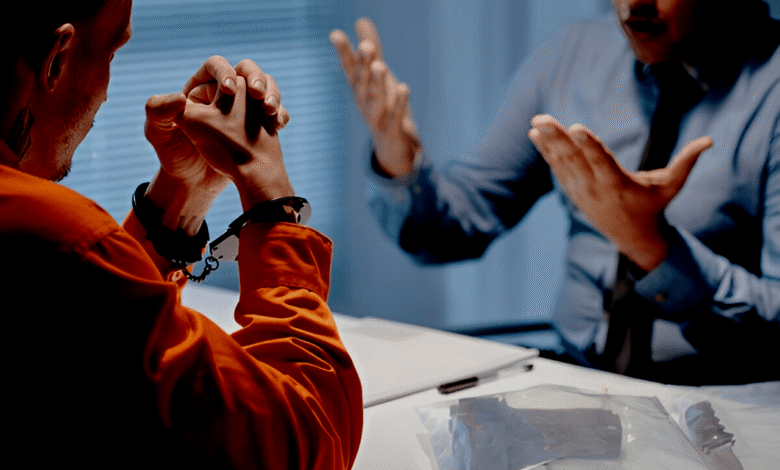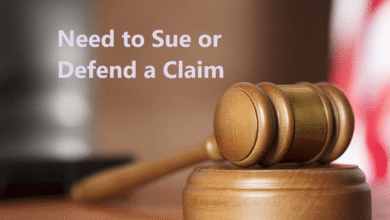Top 5 Criminal Defense Strategies in California Courts
Top 5 criminal defense strategies in California courts Learn key legal tactics from evidence challenges to plea bargains for beating criminal charges.

Facing criminal charges in California can be an overwhelming experience, but understanding the top 5 criminal defense strategies in California courts can significantly improve your chances of a favorable outcome. The state’s legal system is complex, with strict procedural rules and high stakes for defendants. Whether you’re accused of a misdemeanor or a serious felony, the right defense approach can mean the difference between a conviction and a dismissed case. This article explores the most effective legal tactics used by skilled defense attorneys to protect their clients’ rights, challenge evidence, and secure the best possible results.
The top 5 criminal defense strategies in California courts are designed to exploit weaknesses in the prosecution’s case while upholding constitutional protections. From challenging unlawful searches to negotiating plea bargains, each strategy plays a crucial role in building a strong defense. California’s courts require meticulous attention to detail, and even minor procedural errors can lead to case dismissals or reduced charges. By examining these key defense methods, defendants can gain valuable insight into how experienced attorneys fight for their freedom and future. Whether you’re preparing for trial or seeking a plea deal, knowing these strategies will help you navigate the legal process with confidence.
Top 5 Criminal Defense Strategies in California Courts
Identifying Unlawful Searches and Seizures
The Fourth Amendment protects against unreasonable searches, meaning law enforcement must have either A valid warrant supported by probable cause. A legally recognized exception to the warrant requirement (e.g., consent, exigent circumstances, or plain view doctrine). Defense attorneys scrutinize police reports, bodycam footage, and arrest records to determine if officers violated these rules. Common violations include Traffic stops without reasonable suspicion. Warrantless home searches without consent or emergency justification. Overly broad searches beyond the scope of a warrant. If a Criminal Defense was illegal, any evidence found becomes “fruit of the poisonous tree” and may be suppressed.
Filing a Motion to Suppress Evidence
If the defense identifies a Fourth Amendment violation, they file a motion to suppress, asking the court to exclude the tainted evidence. The process Criminal Defense A pre-trial hearing where the prosecution must prove the search was legal. Cross-examination of officers to expose inconsistencies in their testimony. Presenting alternative evidence (e.g., witness statements or video) to contradict the police version. If granted, the motion can cripple the prosecution’s case. For example, in drug possession cases, suppressing a unlawfully seized narcotics often leads to dismissed charges.
Impact on the Case Outcome
Successful suppression can Force prosecutors to drop Criminal Defense if they lose critical evidence. Lead to favorable plea bargains (e.g., reduced charges or alternative sentencing). Create reasonable doubt at trial if the remaining evidence is weak. This strategy is especially potent in drug, gun, and theft cases, where physical evidence is often central to the prosecution. Even if the motion fails, challenging evidence can still weaken the state’s case by highlighting police misconduct or procedural errors to the jury.
Asserting Constitutional Rights Violations
Another critical defense strategy involves asserting violations of the defendant’s Fifth and Sixth Amendment rights. The Fifth Amendment protects against self-incrimination, ensuring that defendants cannot be forced to testify against themselves. If law enforcement fails to Criminal Defense a Miranda warning before interrogation, any resulting confession may be deemed inadmissible. The Sixth Amendment guarantees the right to legal counsel. Additionally, if the prosecution withholds exculpatory evidence (known as a Brady disclosure), the defense can file motions to dismiss the case or demand a mistrial.
Presenting an Alibi Defense
Establishing an Ironclad Alibi
A successful alibi defense requires concrete, Criminal Defense evidence placing the defendant elsewhere during the crime. This typically includes Digital evidence like cell tower pings, surveillance footage, or timestamped transactions. Credible witness testimony from impartial parties (employers, coworkers, security personnel). Documentary proof such as timecards, receipts, or appointment records. The strongest alibis combine multiple types of evidence to create an unbreakable timeline.
Prosecution’s Counter-Tactics
Prosecutors aggressively challenge alibi defenses by Scrutinizing digital evidence for potential manipulation. Attacking witness credibility through cross-examination. Presenting their own evidence to contradict the alibi. Arguing the defendant could have committed the crime before/after the documented alibi period. Defense attorneys must anticipate these challenges and Criminal Defense rebuttals.
Strategic Considerations
An alibi defense requires careful planning because Criminal Defense must disclose alibi witnesses to prosecutors in advance (per California Penal Code 1054.3). A failed alibi attempt can damage credibility with the jury. Alternative defense strategies may need to be prepared if the alibi has weaknesses. When successful, an alibi creates reasonable doubt and often leads to complete acquittal.
Negotiating a Plea Bargain
Not all cases go to trial many are resolved through plea bargains, where the defendant agrees to plead guilty in exchange for reduced charges or a lighter sentence. Prosecutors may offer plea deals to avoid lengthy trials, especially if their evidence is weak. A skilled defense Criminal Defense negotiates for the best possible terms, such as reducing a felony to a misdemeanor or minimizing jail time. In California, alternative sentencing options like probation, drug diversion programs, or community service may also be part of a plea agreement.
Attacking Witness Credibility and Prosecution’s Case
A strong defense often involves discrediting prosecution witnesses or exposing flaws in their testimony. Defense attorneys cross-examine witnesses to reveal Criminal Defense, biases, or unreliable memories. For example, in assault cases, the alleged victim’s account may be contradicted by surveillance footage or other witnesses. In DUI cases, the arresting officer’s observations might be challenged if field sobriety tests were improperly administered. Additionally, forensic evidence can be contested. If DNA, fingerprints, or drug analysis were mishandled, the defense can argue that the results are unreliable.
Read More: 5 Things to Know Before Suing for Medical Negligence in Pennsylvania
Conclusion
Understanding the top 5 criminal defense strategies in California courts is essential for anyone facing criminal charges in the state. From challenging illegal searches and witness credibility to leveraging plea bargains and constitutional protections, these strategies form the foundation of a strong legal defense. Each case is unique, and a skilled criminal defense attorney will carefully analyze the facts to determine which approach or combination of tactics will yield the best possible outcome. By employing these methods effectively, defendants can fight unjust charges, reduce penalties, or even secure case dismissals.
Ultimately, the top 5 criminal defense strategies in California courts highlight the importance of experienced legal representation in navigating the complexities of the justice system. Whether through aggressive litigation or strategic negotiation, the right defense can make all the difference in protecting your rights and future. If you or a loved one are facing criminal charges, consulting with a knowledgeable attorney who understands these strategies is the critical first step toward building a solid defense and achieving the best possible resolution.
FAQs
What is the most common defense strategy in California criminal cases?
Challenging the legality of evidence is a common and effective strategy, as illegally obtained evidence can lead to case dismissal.
Can a plea bargain help avoid jail time?
Yes, plea bargains often result in reduced charges or alternative sentencing, sometimes avoiding jail entirely.
How important is witness credibility in a criminal trial?
Extremely important discrediting witnesses can create reasonable doubt, leading to acquittal.
What happens if police fail to read Miranda rights?
If Miranda warnings are not given before interrogation, any confession may be inadmissible in court.
Is an alibi defense difficult to prove?
It requires strong evidence, such as surveillance or witness testimony, but can be highly effective if well-documented.











